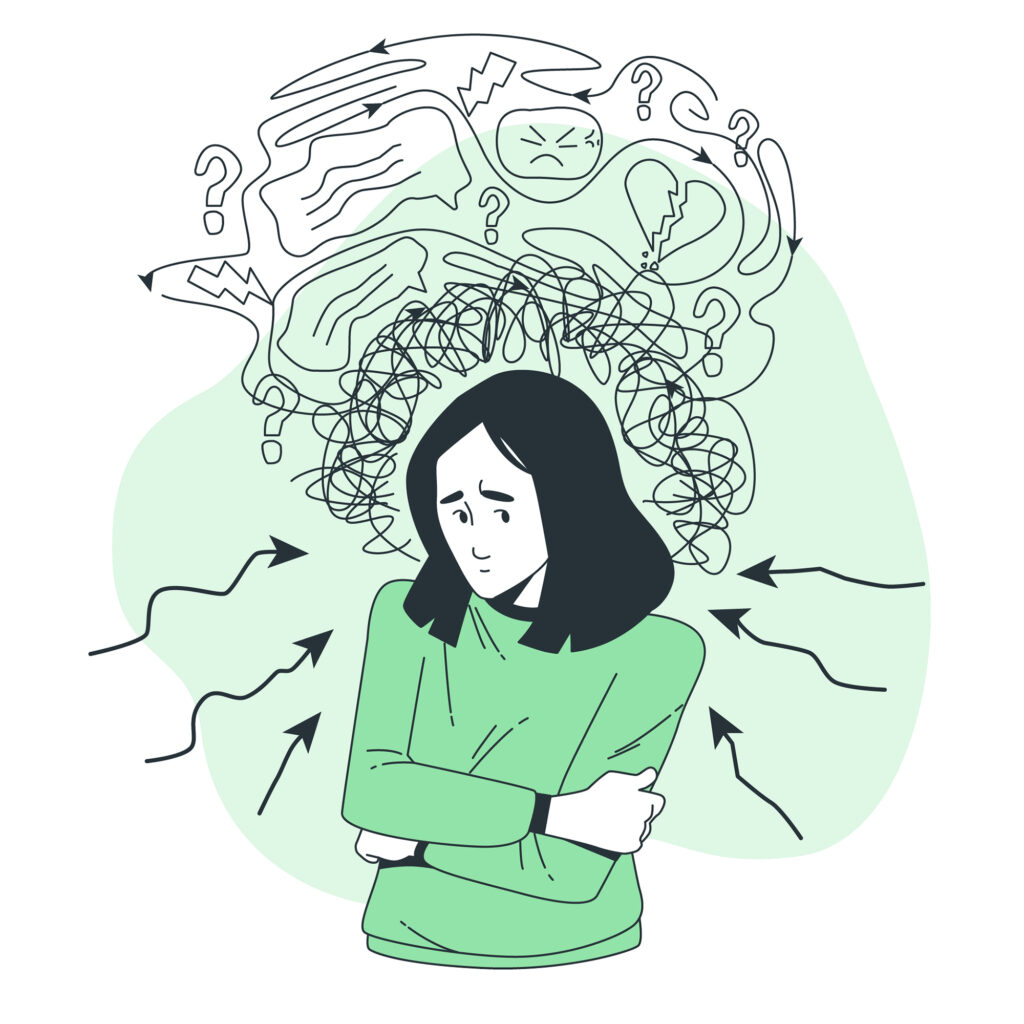Anxiety Disorders and Suicidal Thoughts: A Connection Explored
Anxiety Disorders and Suicidal Thoughts: A Connection Explored
Read Disclaimer
Millions of individuals all over the world suffer from Anxiety Disorders and Suicidal Thoughts, which are characterized by excessive worry, dread, and a variety of uncomfortable symptoms. In addition to having an effect on a person’s everyday life, many illnesses have the potential to have serious repercussions if left untreated. The possibility that anxiety problems and suicide thoughts are related is disturbing. We will examine the links between anxiety disorders and suicidal thoughts in this enlightening blog article, looking at risk factors, typical symptoms, and treatment options. We seek to raise awareness and understanding of the difficulties experienced by persons coping with anxiety disorders by throwing light on this important subject.
Table of Contents
Anxiety Disorders and Suicidal Thoughts: Introduction
A category of mental health illnesses known as anxiety disorders are characterized by persistent emotions of fear, concern, and dread. Numerous stresses have the potential to cause these diseases, and if they are not treated properly, they may get worse over time. There is rising worry concerning the link between anxiety disorders and suicide thoughts, in addition to the severe symptoms they are linked with. In order to give prompt assistance and intervention to people in need, it is critical to detect the possible connection between anxiety and suicide risk.

Knowing about anxiety disorders
There is more to anxiety disorders than sporadic trepidation or terror. They entail excessive, uncontrolled concern that disrupts day-to-day activities. Generalized anxiety disorder (GAD), panic disorder, social anxiety disorder, and particular phobias are among the most prevalent anxiety disorders. A variety of physical and mental symptoms, such as restlessness and irritability, are common in people with anxiety disorders.
• Shortness of breath and a racing pulse
• Excessive perspiration
• Concentration issues
• Avoiding anxiety-inducing events or triggers
These symptoms may cause a person to feel hopeless and depressed and might seriously affect their capacity to operate.
Suicidal Thoughts and Anxiety Disorders: A Connection
Suicidal thoughts and anxiety problems have been linked in studies. People with anxiety may become so overwhelmed by their pervasive worry and fear that they start to consider suicide as a way to cope. Furthermore, some risk factors, such as a history of suicidal conduct, co-occurring mental health disorders, and a lack of access to suitable assistance, may strengthen this link.
It’s vital to remember that not everyone who suffers from anxiety problems would consider suicide. However, people who experience extreme anxiety and a number of risk factors are at an increased risk.
Identifying Warning Signs
Early intervention requires an understanding of the warning indicators of suicidal thinking. The following warning indicators should alert family members and friends:
• Putting into words thoughts of worthlessness or hopelessness
• Talking about wanting to die or taking their own life
• Withdrawing from activities and social contacts;
• Giving away goods or making last preparations
It is crucial to acknowledge someone’s discomfort and provide prompt support and aid if they display these symptoms.

Getting Professional Assistance
It takes a specialist to address anxiety issues and its conceivable connection to suicide thoughts. Psychologists and other mental health specialists are essential in the diagnosis and treatment of anxiety disorders. Medication and treatment techniques like cognitive-behavioral therapy (CBT) can both help manage anxiety symptoms and lower suicidal thoughts.
The quality of life and general wellbeing of those who are dealing with anxiety can be greatly improved by receiving support from a mental health specialist.

Coping mechanisms and preventative actions
For those with anxiety problems, learning effective coping mechanisms is crucial. Exercise, mindfulness exercises, and relaxation techniques can all assist to lower anxiety and the likelihood of suicidal thoughts. Additionally, creating a strong network of allies and encouraging open communication may offer much-needed emotional support during trying times.
Taking preventive action is essential for lowering the risk of suicide. Lifesaving efforts include spreading knowledge about anxiety disorders, encouraging mental health education, and arguing for easily available mental health resources.
FAQ
Anxiety disorders: what are they?
A collection of mental health diseases known as anxiety disorders are characterized by excessive worry and dread, which can interfere with day-to-day functioning. Panic disorder and generalized anxiety disorder (GAD) are two typical instances.
Is there a link between suicide thoughts and anxiety disorders?
The relationship between anxiety problems and suicide ideation has really been demonstrated by study. People with anxiety may consider suicide as an escape due to the excessive state of concern and fear they constantly encounter.
What indications of suicidal thinking are there?
Expressions of despondency, statements about wishing to die, withdrawal from social engagements, and giving away of goods are all warning indicators.
How can anxiety problems be managed?
Exercise, mindfulness exercises, and relaxation techniques are all examples of coping mechanisms. Fostering open communication and developing a strong support system can also be beneficial.
What part do specialists in mental
health play in treating anxiety disorders?
Anxiety disorders must be diagnosed and treated by mental health experts. Anxiety symptoms can be effectively managed with the use of medications and therapies like cognitive-behavioral therapy (CBT).
Conclusion
Debilitating anxiety disorders can have a negative impact on a person’s mental health and general quality of life. The necessity of offering assistance and intervention to those who are struggling is underscored by the probable connection between anxiety disorders and suicide ideation. We can foster a caring and empathic atmosphere that supports mental health and wellbeing by being aware of the warning signals, getting expert assistance, and taking preventative actions. Together, we can overcome the difficulties brought on by anxiety disorders and work to create a society in which everyone has access to the tools they require for mental health.

Thank you for your sharing. I am worried that I lack creative ideas. It is your article that makes me full of hope. Thank you. But, I have a question, can you help me?
Your point of view caught my eye and was very interesting. Thanks. I have a question for you.
Can you be more specific about the content of your article? After reading it, I still have some doubts. Hope you can help me.
Your point of view caught my eye and was very interesting. Thanks. I have a question for you.
I don’t think the title of your article matches the content lol. Just kidding, mainly because I had some doubts after reading the article.
Can you be more specific about the content of your article? After reading it, I still have some doubts. Hope you can help me.
Can you be more specific about the content of your article? After reading it, I still have some doubts. Hope you can help me.
Your article helped me a lot, is there any more related content? Thanks!